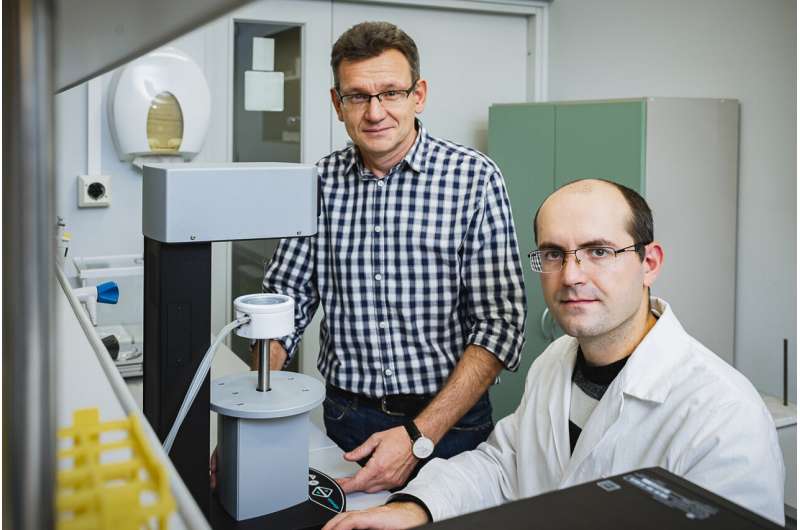This article has been reviewed according to Science X's editorial process and policies. Editors have highlighted the following attributes while ensuring the content's credibility:
fact-checked
proofread
Study sheds light on the development of novel antidotes against nerve agents

A new article was published in Chemico-Biological Interactions by the Sustainable Chemistry and Engineering research group of Tallinn University of Technology in collaboration with colleagues from the Czech Republic, Brazil, and the UK. This study sheds light on applications of existing competence in designing biodegradable molecules in an innovative way—to develop novel antidotes against organophosphate poisoning.
Acetylcholinesterase (AChE) is an enzyme involved in the proper functioning of the nervous system. It catalyzes the breakdown of the neurotransmitter acetylcholine. Inhibition of human AChE is the main mechanism for the toxicity of so-called nerve agents—chemical warfare agents like Sarin, VX, or the recently renowned Novichok. This results in the accumulation of acetylcholine at synapses, leading to nervous and respiratory failure and death within minutes.
Although the major world powers have agreed to abandon the use of chemical weapons and destroy their stockpiles, the key intermediates are sometimes relatively easy to synthesize and use by terrorists or rogue states. Despite numerous efforts of researchers, there are still no universal reactivators sufficiently effective against all nerve agents.
Yevgen Karpichev, a PI of the research group, says, "Our study is the perfect marriage between a sustainable approach to making new molecular platforms and the search for new antidotes—reactivators of acetylcholinesterase, inhibited by toxic organophosphorus compounds."
"We have been developing the building blocks for biodegradable ionic liquids (IL) and surfactants for years, using a so-called 'benign-by-design' approach to be sustainable in our research. At the same time, we have worked on projects devoted to the detoxification of organophosphorus toxicants and knew this field well. We know that the principles of sustainability are not always applied to chemistry in 'hard times'. In this research, we have applied two of our competencies at once."
The novel compounds reveal a remarkable activity against the AChE inhibited by nerve agent VX, exceeding conventional reactivators. They are found to be non-toxic to bacteria and fungi, possess low toxicity against mammalian cells, and are not persistent but are stable in human plasma.
"This work represents a state-of-the-art study in this field and will be used for the improvement of human acetylcholinesterase reactivators critically important for the treatment of organophosphate poisoning," adds the research group leader.
More information: Illia V. Kapitanov et al, Sustainable ionic liquids-based molecular platforms for designing acetylcholinesterase reactivators, Chemico-Biological Interactions (2023). DOI: 10.1016/j.cbi.2023.110735
Provided by Estonian Research Council




















